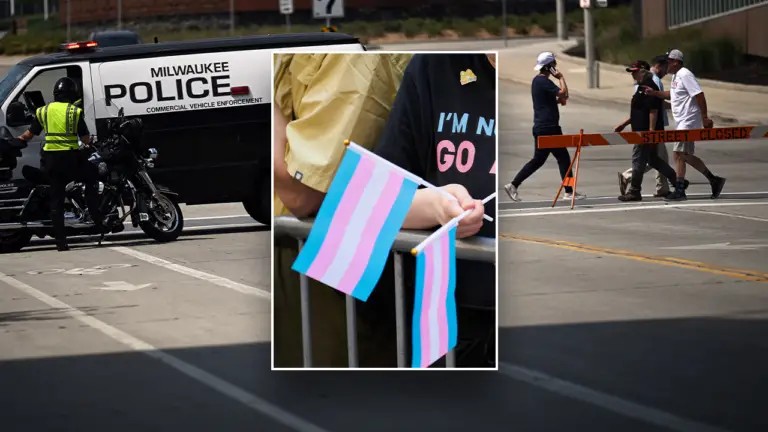Milwaukee Police Department Adopts New Policy to Protect Victim Privacy
In a move aimed at safeguarding the dignity and privacy of crime victims, the Milwaukee Police Department (MPD) has decided to cease disclosing a victim’s race or gender in public statements. This decision came in the wake of past instances where transgender crime victims were misgendered in official releases.
Heather Hough, Chief of Staff at the MPD, explained, “It’s a way to preserve the dignity and privacy of all victims. MPD wants to ensure the best service possible for our entire community.”
This significant announcement was made following discussions between the MPD and members of the LGBTQ community. Milwaukee, a Democratic stronghold, has been under Democratic leadership since 1960.
Sgt. Guadalupe Velasquez, the MPD LGBTQ liaison, initiated this policy change request in May after encountering an incident where a transgender victim was misgendered. She emphasized the importance of not exacerbating the trauma experienced by victims and voiced concerns that past misgendering incidents had negatively impacted the gay, lesbian, and transgender community’s perception of the police.
The Milwaukee Journal Sentinel reported that the MPD had misgendered three Black transgender women who tragically lost their lives in the city last year. Regrettably, these errors were then cited in various media reports.
It’s essential to clarify that this policy change applies solely to information proactively released by the MPD in press releases, not to open records or crime statistics. The MPD will continue to disclose a suspect’s race and gender when relevant to a case.
Nevertheless, this policy has received criticism from some quarters. The Wisconsin Freedom of Information Council, a nonpartisan organization dedicated to promoting transparency in government practices, labeled it a “terrible idea.” Concerns were raised about whether the public should have access to information about the demographics of crime victims, especially when it comes to hate crimes.
Bill Lueders, President of the Wisconsin Freedom of Information Council, questioned, “Does the public really not have a right to know if minorities, for instance, are disproportionately victims of crime? Does it not have the right to know if people are being killed because of their gender?” He noted that victim demographics can be crucial, particularly in homicide cases.
It’s worth noting that, as of the last available information, no other police department in the state had implemented a similar policy. Greg Borowski, an editor at the Milwaukee Journal Sentinel, underscored the importance of journalists being able to provide a comprehensive understanding of community issues, including those related to crime.
While recognizing the importance of respecting transgender victims, Borowski stated, “This change makes that harder, though we remain committed to the task. We share the goal of not misgendering transgender victims of crimes. But if there are concerns about bad information being released, the best remedy is to assure that only solid information is released — not to put up new barriers that make it harder for the public to know what is happening in their neighborhoods and throughout the community.”
As of now, the Milwaukee Police Department has not responded to requests for additional comments on this policy change.

